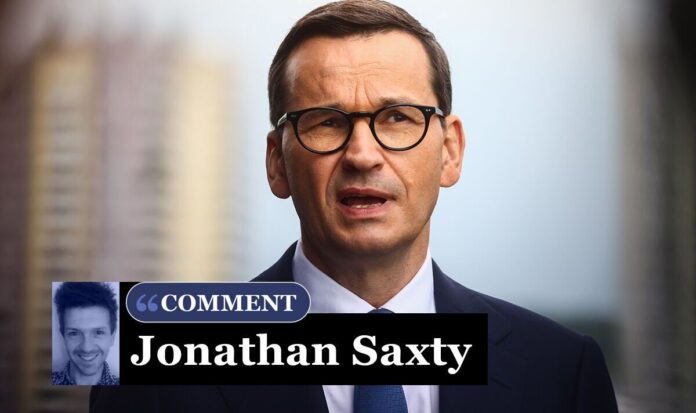Poland to hold Brexit-style referendum, says Jonathan Saxty (Image: Getty) Poland – bête noire of the European Union – won’t be winning friends in Brussels this Autumn, with the leading power of the EU’s conservative eastern flank not only confirming its general election for October 15 but a nationwide referendum as well on accepting ‘thousands of illegal immigrants from the Middle East and Africa’. This refers to a major new EU migration relocation plan which Hungary and Poland rejected, and which several other member states abstained from. The initiative is certain to be rejected in Poland, something opposition parties believe is designed to help the ruling United Right alliance on election day. According to Prime Minister Mateusz Morawiecki the referendum question will refer to ‘the forced relocation mechanism imposed by the European bureaucracy’ – language which gets to the heart of the east-west divide within the EU. This well-documented divide relates to social values quite as much as national sovereignty. In a sign perhaps of growing direct democracy in Poland, voters will also be asked to vote in referenda on privatisation and raising the retirement age. A further referendum is likely to be revealed this week. But it is the migration question which will likely generate the most publicity and controversy abroad. Leader of the Law and Justice party, Jarosław Kaczyński (Image: Getty) As if to further wind up Brussels, a video announcing the referendum included scenes of street violence in Western Europe, alongside a black man licking a knife. Jarosław Kaczyński – leader of the Law and Justice party which dominates United Right – then says: ‘Do you want this to happen in Poland as well?’ For Brussels, this circles back to Poland’s (and Hungary’s) failure to sign up to Western European norms and values, linked – as the EU sees it – to democratic backsliding and failings on the rule of law. For Budapest and Warsaw, attacking them over the rule of law is all part of a conspiracy by Brussels to undermine the traditional values of Central and Eastern European states. United Right, and Law and Justice, have sought to portray former PM and President of the European Council, Donald Tusk – as well as the Civic Platform opposition he leads – as threats to Polish security, as well as to perceived closeness to Germany, with the Polish Government recently talking up the possibility of wartime reparations from Germany. Former President of the European Council Donald Tusk (Image: Getty) Currently United Right is ahead in the polls but not by enough to win outright, meaning the alliance – and the Law and Justice party – may need the support of the even more conservative and Eurosceptic Confederation party to form the next government. What divides Law and Justice from Confederation is less the EU and immigration, as it is economics. Therefore, referenda on privatisation and raising the retirement age is not going to bring the two parties closer together. That said, it is unlikely Law and Justice, and Confederation, would refuse to work together if that meant letting Civil Platform and its allies seize power. Poland’s election is part of several over the next year or so with worldwide political significance. Others include elections in Taiwan and the USA, both extremely significant given ongoing tensions with China. The Poland election however will have huge ramifications for the ongoing EU east-west schism which currently pits a liberal Western Europe against a conservative Central and Eastern Europe. The proposed migration referendum gets to the heart of this divide. Although Poland has taken in up to a million refugees from Ukraine , from Warsaw’s perspective this was acceptable given these were Slavic, European and Christian migrants, a position which stands at odds with Western European countries who refuse to differentiate between European and non-European immigration. A United Right-Confederation alliance would drive an even greater wedge between Brussels and Warsaw, assuming United Right and Confederation can overcome their current economic differences. Whatever else, the east-west EU divide is going nowhere. With the latest referendum announcement – and its accompanying video – the Polish Government has not just fired the starting gun on the election but confirmed the ongoing alienation Poland feels from the bloc it once enthusiastically embraced.
21 September, Saturday, 2024


